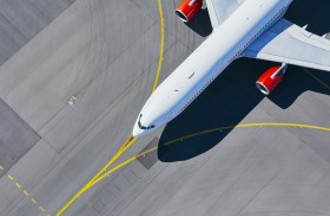
Singapore – The latest estimates from the International Air Transport Association (IATA) indicate a worsening of the country impact from the COVID-19 crisis in the Asia Pacific region.
On 14 April 2020, IATA released updated analysis showing that the COVID-19 crisis will see global airline passenger revenues drop by US$314 billion in 2020, a 55% decline compared to 2019. Airlines in Asia Pacific will see the largest revenue drop of US$113 billion in 2020 compared to 2019 (-US$88 billion in 24 March estimate), and a 50% fall in passenger demand in 2020 compared to 2019 (-37% in 24 March estimate). These estimates are based on a scenario of severe travel restrictions lasting for three months, with a gradual lifting of restrictions in domestic markets, followed by regional and intercontinental.
“The situation is deteriorating. Airlines are in survival mode. They face a liquidity crisis with a US$61 billion cash burn in the second quarter. We have seen the first airline casualty in the region. There will be more casualties if governments do not step in urgently to ensure airlines have sufficient cash flow to tide them over this period,” said Conrad Clifford, IATA’s Regional Vice President, Asia-Pacific. He identified India, Indonesia, Japan, Malaysia, the Philippines, Republic of Korea, Sri Lanka and Thailand as priority countries that need to take action. IATA is calling for a combination of:
- Direct financial support
- Loans, loan guarantees and support for the corporate bond market
- Tax relief
“Providing support for airlines has a broader economic implication. Jobs across many sectors will be impacted if airlines do not survive the COVID-19 crisis. Every airline job supports another 24 in the travel and tourism value chain. In Asia-Pacific, 11.2 million jobs are at risk, including those that are dependent on the aviation industry, such as travel and tourism,” said Clifford.
“Airlines continue to perform an important role currently with the transport of essential goods, including medical supplies, and the repatriation of thousands of people stranded around the world by travel restrictions. And after the COVID-19 pandemic is contained, governments will need airlines to support the economic recovery, connect manufacturing hubs and support tourism. That’s why they need to act now – and urgently - before it is too late,” said Clifford.
Details of the latest country impact are given below.
| Country | Percentage change in passenger demand (2020 vs 2019) | Passenger demand impact (origin-destination volumes - 2020 vs 2019) | Revenue impact (US$, millions - 2020 vs 2019) | Potential jobs impact
|
|---|---|---|---|---|
| Australia | -51% | -50,510,000 | -14,255 | -362,100 |
| Bangladesh | -48% | -5,541,000 | -1,073 | -61,900 |
| Brunei Darussalam | -50% | -605,000 | -114 | -8,500 |
| Cambodia | -45% | -5,390,000 | -866 | -770,000 |
| Fiji | -51% | -1,158,000 | -305 | -65,100 |
| India | -47% | -89,764,000 | -11,221 | -2,932,900 |
| Indonesia | -49% | -59,756,000 | -8,225 | -2,069,000 |
| Japan | -50% | -93,862,000 | -22,625 | -585,900 |
| Laos | -51% | -1,618,000 | -220 | -23,800 |
| Malaysia | -51% | -33,513,000 | -4,236 | -220,500 |
| Maldives | -51% | -2,747,000 | -639 | -37,200 |
| Myanmar | -48% | -4,377,000 | -691 | -245,200 |
| Nepal | -51% | -3,422,000 | -522 | -229,900 |
| New Zealand | -50% | -12,865,000 | -3,388 | -170,100 |
| Pakistan | -52% | -9,866,000 | -1,829 | -259,400 |
| Philippines | -47% | -28,852,000 | -4,481 | -548,300 |
| Republic of Korea | -52% | -59,219,000 | -10,755 | -371,200 |
| Singapore | -48% | -23,897,000 | -6,732 | -169,000 |
| Sri Lanka | -58% | -4,049,000 | -715 | -408,200 |
| Thailand | -52% | -55,562,000 | -8,289 | -2,167,000 |
| Vietnam | -45% | -31,902,000 | -4,347 | -989,500 |
Find the previous country impact assessment.
For more information, please contact
Corporate Communications
Tel: +41 22 770 2967
Email: corpcomms@iata.org
Notes for Editors:
- IATA (International Air Transport Association) represents some 290 airlines comprising 82% of global air traffic.
- You can follow us at https://twitter.com/iata for announcements, policy positions, and other useful industry information.

